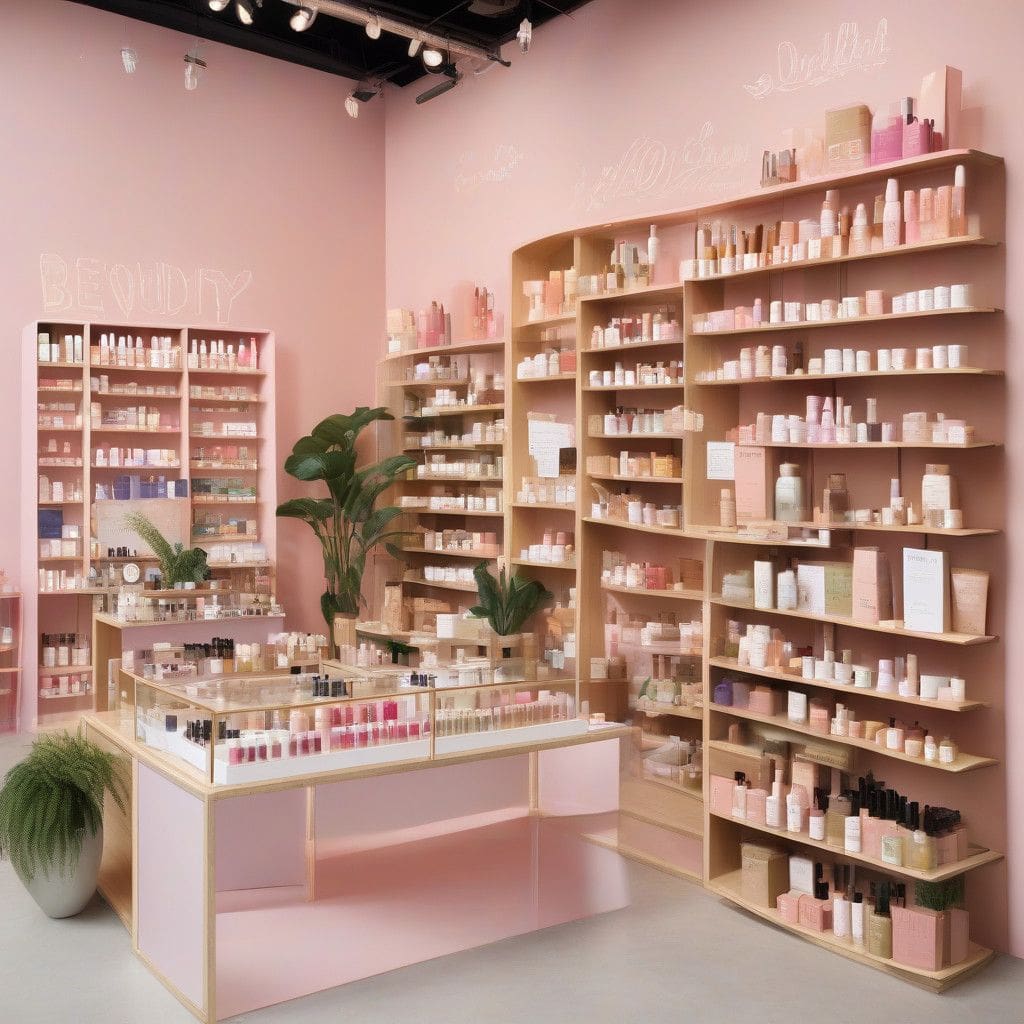The beauty industry has nearly always been sparkling with hope and possibility, but the landscape has shifted recently. Rising interest rates, increased competition, and slowing mergers and acquisitions (M&A) have made many players in the beauty sector cautious about their future. However, British cosmetics brand Refy is confident that the indie beauty boom is not only alive but can also thrive through careful strategy and brand positioning.
Co-founded by Jenna Meek and influencer Jess Hunt in 2020, Refy was born out of a passion for beauty and a clear market need. The brand initially launched with three eyebrow products aimed at recreating Hunt’s iconic brows. This simple yet effective start has catapulted Refy into the limelight, and it now boasts a full range of makeup and skincare products, earning an expected $85 million in sales this year alone. According to Meek, the company aims to exceed $130 million in sales by 2026, a strategy designed not merely to grow revenue but to establish a strong, enduring brand identity.
Meek’s vision is ambitious; she predicts a multi-billion-dollar valuation—specifically $2.7 billion—within seven years. This figure is grounded in her previous entrepreneurial experience and her confidence in Refy’s potential enduring success. However, the path to achieving such a valuation is not straightforward. It will require strategic growth within key markets, a robust product line, and the ability to retain the brand’s unique identity while capturing a broader audience.
Maintaining Unique Brand Identity
In an environment where influencer-led brands often face rapid declines in popularity, Refy is working hard to distance itself from this trend. Meek is keenly aware that many beauty brands linked to a specific influencer struggle when that influencer’s visibility diminishes. To combat this, Refy is focusing on maturing its image. “We’re building a brand that is for the future,” Meek states, highlighting her ambition to place Refy alongside luxury brands like Byredo and Aesop, both of which have demonstrated lucrative exits in recent years.
The brand’s careful positioning is complemented by an affordable pricing strategy. Refy maintains a price point that attracts consumers looking for premium beauty without breaking the bank. With best-sellers averaging between $20 and $25, Refy appeals to a demographic that craves quality without the hefty price tag, especially when compared to competitors whose products often sit in the $40 to $50 range.
Innovative Products for Modern Consumers
Product development is central to Refy’s strategy. Its initial offerings, such as the Brow Sculpt and Lip Sculpt, were designed to catch attention but were also met with mixed reviews regarding usability for all consumers. Recognizing this, the brand expanded its line to include approachable alternatives, such as brow pencils and lip glosses, balancing trendy products with essentials that consumers would repurchase regularly.
Current beauty trends favor a more natural look, commonly referred to as the “clean girl” aesthetic, which aligns with Refy’s core values. However, Meek understands her audience desires a balance—dramatic yet natural effects. She believes that the modern consumer does not want to sacrifice results for subtlety.
Navigating a Crowded Market
The competitive nature of the beauty industry should not be underestimated. Many recent indie beauty brands have hit hurdles, as seen in the case of Morphe, which filed for bankruptcy in 2023 after failing to recover from influencer-related scandals. Refy needs to build a strong community around its products while fostering brand loyalty to ensure it is not just another passing trend.
One of Refy’s unique approaches is its commitment to community engagement. The company has organized brand trips for customers and sponsored events, such as Paris Fashion Week, to cultivate a brand image that resonates deeply with consumers. These efforts not only serve promotional purposes but also strive to create authentic relationships between the brand and its audience.
Future-Proofing the Brand
Refy is acutely aware that scaling its operations must go hand in hand with maintaining the brand’s integrity. To achieve its lofty sales goals, it must reach beyond the existing millennial and Gen-Z customer base while also fending off potential imitators. As the company looks to expand in the US and UK markets, Meek has hired experienced staff to facilitate robust training and sales strategies to ensure that store personnel are well-equipped to represent the brand accurately.
Marko Horvat, a managing director at Raymond James, warns that as Refy scales, it may become more attractive to competitors. This pressure emphasizes the importance of ensuring that Refy has not only a solid market presence but also compelling growth levers. Meek acknowledges this necessity, stating, “As you get bigger, there are more targets on your back.”
Conclusion
Refy is animatedly working to carve out its place in the beauty sector while holding firm to its unique identity in a challenging environment. Through innovative products, strategic community engagement, and a focus on maintaining a relatable brand image, Refy seems poised to thrive in the landscape of indie beauty brands. Its trajectory will ultimately rest on the ability to adapt and evolve, navigating a market that grows increasingly competitive.











